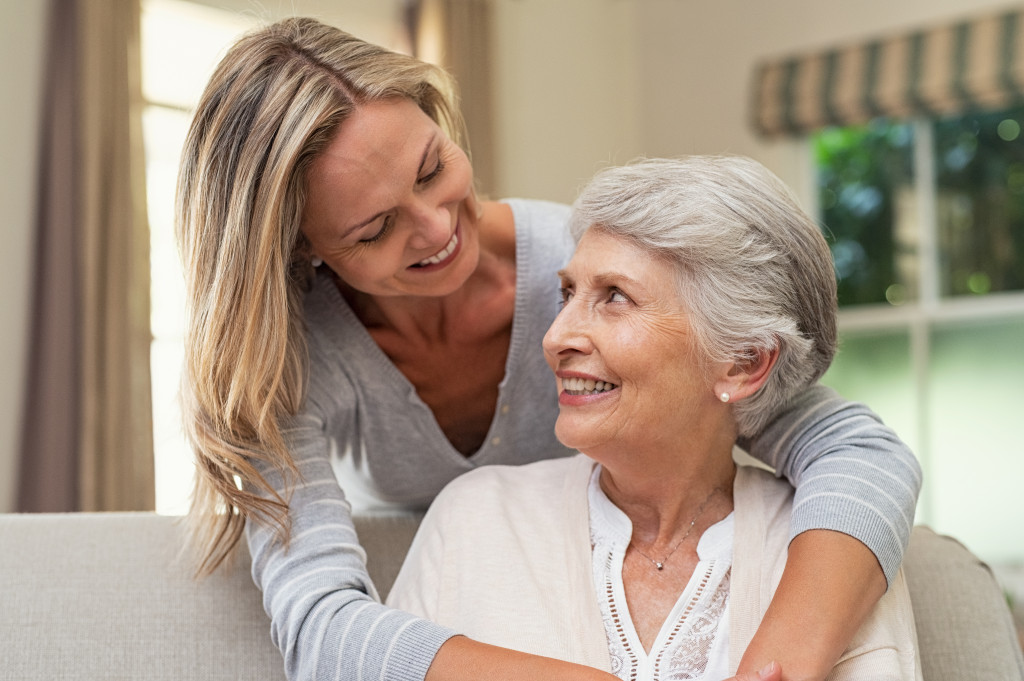In a post-pandemic world, it can be difficult to know how best to take care of elderly family members. Many of the usual avenues for support and companionship have been closed off due to social distancing measures. In order to help ensure that your senior loved ones remain safe and healthy in this new environment, you must become creative with your approaches and utilize technology wherever possible. This article overviews three ways to care for elderly families in a post-pandemic world. By exploring these methods, you can gain insight into how best to protect your elderly relatives during these uncertain times.
Find Creative Ways To Provide Companionship Remotely
In the current climate, providing meaningful companionship to elderly family members can be difficult. While technology offers some assistance in this regard, it is also important to find creative ways of connecting with them while respecting social distancing measures. For example, you could arrange a virtual call or video chat with your elderly relative to share photos and stories from the past, listen to music together, play online games, or catch up on the latest news. By finding novel activities that you can do together from afar, you can build meaningful connections without having to leave home.
In addition to virtual activities, you can also arrange for at-home hospice care. This form of care provides personalized medical and emotional support for those facing serious illness or near the end of life. It allows elderly family members to stay home while receiving compassionate and dignified care from experienced professionals. Professional caregivers can assist with medical needs such as pain management, medication management, and wound care. They can also provide companionship, helping to ease feelings of loneliness and hopelessness. Caregivers can assist with housekeeping services such as meal preparation, light cleaning, and laundry, ensuring your elderly relative is comfortable in their home environment.
Investing In Technology Aids To Facilitate Independent Living

Technology is increasingly important in your daily life and can be especially helpful for elderly family members who wish to maintain their independence. A range of devices available can help with tasks such as managing medications, monitoring vital signs, or providing reminders about upcoming appointments. The right technology aids can make a difference in helping facilitate independent living and allow seniors to stay connected with loved ones even when physical contact is impossible.
Investing in the right technology can save time, money, and stress for seniors who want to remain independent. Sensors and alarms monitoring movement or detecting falls are especially helpful for those living alone. Automatic door locks eliminate the need for keys, while motion-activated lights provide security both inside and outside the home. Technologies such as voice recognition software can help elderly family members manage their schedule without relying on others, while monitoring systems can provide an extra layer of security and peace of mind.
Smart home devices that allow seniors to remotely control the temperature, lights, and other appliances are also becoming increasingly available. By investing in technology aids for independent living, seniors can access the latest advancements without leaving the comfort of their homes. Additionally, telehealth and virtual visits can help those living with chronic conditions monitor and manage their health in real-time.
Create Daily Schedules Of Meaningful Activities To Stave Off Isolation
A key concern amongst elderly people during the pandemic is isolation and loneliness. To help combat this, it can be beneficial to create a schedule of meaningful activities that your elderly family member can look forward to each day. These could include daily exercise or taking part in virtual classes, getting out into nature for some fresh air, or engaging in hobbies such as reading, writing, painting, etc. Having a routine of activities can provide structure and purpose during periods of isolation, which can make all the difference for your senior loved ones.
It can also be helpful to plan social activities which provide a sense of connection and community. This could include virtual meetings, calls with family members and friends, or joining online clubs or support groups related to particular interests. These kinds of activities will encourage your elderly loved ones to stay socially connected, even when physical visits are not possible.
Additionally, volunteering can be a great way to keep busy while also helping others in need. Whatever activities you decide to include in your elderly family member’s daily schedule, it is important to ensure they are manageable and enjoyable. It might be helpful to involve the family member in creating the schedule so that you can consider their individual needs and interests.
In Summary
Taking care of elderly families in a post-pandemic world can be challenging, but there are many methods you can use to ensure their safety and well-being. By utilizing technology, finding creative ways to stay connected remotely, increasing home security measures, creating meaningful activities, and alleviating financial worries with relevant programs, you can ensure that your senior loved ones are taken care of during this difficult period.

